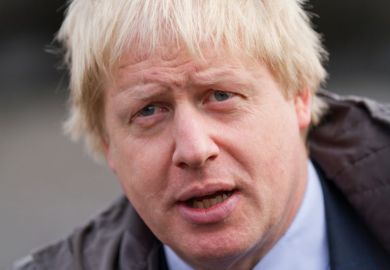The UK general election is (finally) over. While Boris Johnson had been predicted to come out on top, the scale of the win achieved was unexpected. However, unlike his predecessor, Theresa May, he has received the mandate he sought to deliver Brexit. But what will this majority Conservative government mean for higher education?
The Conservative strapline for this election couldn’t have been simpler (in phrasing, if not in delivery): “Get Brexit done.”
It is almost inevitable that we will now be leaving the European Union on 31 January, with the previously negotiated withdrawal agreement. For universities, which are reliant on our relationship with the EU for staff, students and research, this will be of great concern, although the immediate risk of leaving without a deal appears to have passed for now.
It is unlikely that considering the impact of Brexit on universities is going to be Johnson’s priority when he is trying to demonstrate that he has achieved his goal of getting the UK out of the EU.
However, looking back to the Conservative Party manifesto, commitments were made to retain an international focus. While it won’t affect students from the EU, the visa changes to allow international students to stay in the UK to work once they finish their studies, which were reiterated in the manifesto, demonstrate a radical change in approach from the May government. The UK is starting again to seek to improve the offer for international students.
Commitments to international research relationships were also highlighted in the Conservative manifesto. The otherwise thin manifesto explicitly stated: “We will continue to collaborate internationally and with the EU on scientific research, including Horizon.”
While manifesto commitments are not always delivered on, this at least demonstrates that the matter has crossed the minds of the new government. It appears that Dominic Cummings’ influence on the Conservative Party has led to significant manifesto commitments on research, looking to make the “fastest ever” increase in research and development to meet the 2.4 per cent of GDP target.
While higher education is unlikely to be top of Johnson’s agenda, he does have some understanding of the sector. His background as shadow higher education minister will have given him some awareness of how universities operate, and he is one of the rare Conservative MPs to have a university within his constituency. Whether that plays out in his approach to developing higher education policy is yet to be seen.
The recommendations around university funding from the Augar review appear to have been pushed to one side, with no clear commitment made by the Conservatives on tuition fees in the election campaign. However, Johnson did make significant spending commitments for other sectors throughout the campaign. If he’s going to deliver at least some of them, he’s probably not going to prioritise lifting the freeze on the unit of resource for universities.
One other consequence of the new government is that it’s likely that we could be seeing the sixth higher education minister in six years. Johnson has a significant mandate and a whole selection of loyal new MPs to consider. Once the dust has settled today, it’s likely that he’ll be looking for a shake-up of the Cabinet, which could see Chris Skidmore moved on from his comeback role as minister of state for universities, science, research and innovation.
It is too soon to tell who might be set to take his place. Whoever it is, though, universities will need to again launch their campaigns to convince them of the importance of their role and to share the wide range of work they do.
The higher education sector has been dogged with uncertainty over the past few months and years – on Brexit, tuition fees and student numbers. It seems, if nothing else, the election result means that we do at least have some degree of certainty about what’s to come over the next few months.
Vice-chancellors across England probably woke up less concerned than if the result had been a Labour government with the pledge to remove tuition fees and the risk of student number caps being reintroduced. However, the path is not yet completely clear for the higher education sector, and risks on Brexit and funding will continue to prevail.
Rachel Hewitt is director of policy and advocacy at the Higher Education Policy Institute.
Register to continue
Why register?
- Registration is free and only takes a moment
- Once registered, you can read 3 articles a month
- Sign up for our newsletter
Subscribe
Or subscribe for unlimited access to:
- Unlimited access to news, views, insights & reviews
- Digital editions
- Digital access to THE’s university and college rankings analysis
Already registered or a current subscriber? Login


